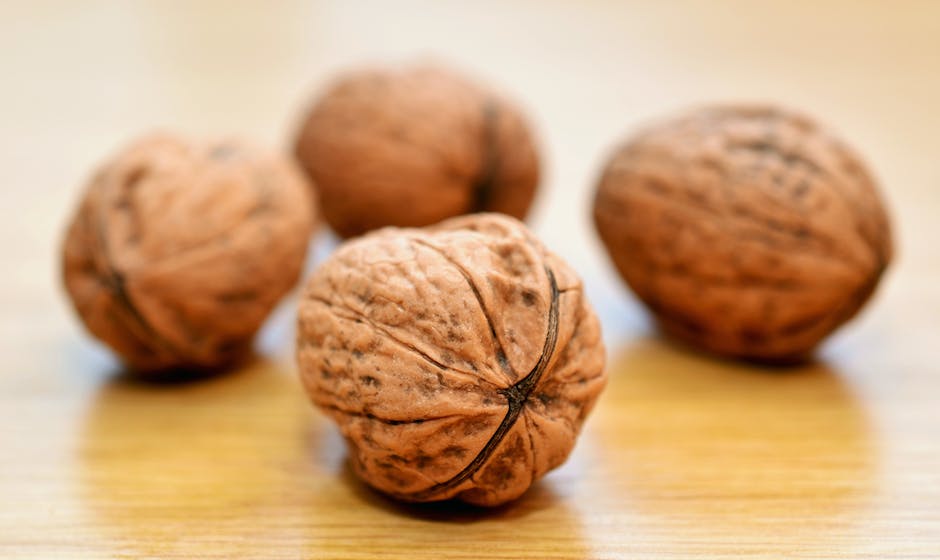Can You Eat Black Walnuts? Unveiling the Nutty Truth
When it comes to nuts, black walnuts are like the hidden gems of the forest floor. Often overshadowed by their more popular cousin, the English walnut, black walnuts are a powerhouse of flavor and nutrients. But can you eat black walnuts, and if so, how do you incorporate them into your diet? In this comprehensive guide, we’ll crack open the world of black walnuts, exploring their benefits, culinary uses, and answering the most commonly searched questions about these robust nuts.
What Are Black Walnuts?
The Unique Profile of Black Walnuts
Black walnuts, known scientifically as Juglans nigra, are native to North America and have been a staple in the diets of both Native Americans and early settlers. Unlike the English walnut, black walnuts have a bolder, earthier flavor and a harder shell that makes them a bit more challenging to crack. But the effort is well worth it, as these nuts are not only edible but also highly nutritious.
Nutritional Benefits of Black Walnuts
Packed with protein, healthy fats, and antioxidants, black walnuts are a nutritional powerhouse. They are particularly rich in omega-3 fatty acids, which are essential for heart health, and they contain a significant amount of vitamins and minerals, including magnesium and vitamin E.
How to Harvest and Prepare Black Walnuts
Harvesting Black Walnuts
If you’re lucky enough to have access to black walnut trees, harvesting these nuts can be a rewarding experience. The best time to gather black walnuts is in early autumn when the outer green husk begins to split. Wearing gloves is advisable as the husks contain a stain that can be difficult to remove from skin.
Preparing Black Walnuts for Consumption
Once harvested, the outer husk needs to be removed. This can be done by rolling the nuts underfoot or using a specialized tool. After de-husking, the nuts should be washed and then cured by air-drying for several weeks before cracking them open to reveal the edible kernel inside.
Can You Eat Black Walnuts Raw?
The Edibility of Raw Black Walnuts
Yes, you can eat black walnuts raw. In fact, consuming them in their raw state ensures you get the maximum nutritional benefits. However, their intense flavor might be too much for some palates. If you find the taste too strong, there are other ways to enjoy black walnuts.
Tips for Enjoying Raw Black Walnuts
To make raw black walnuts more palatable, try soaking them overnight to reduce the tannin content, which can give them a bitter taste. You can also mix them with sweeter nuts or add them to fruit salads to balance their robust flavor.
Cooking with Black Walnuts
Culinary Uses of Black Walnuts
Black walnuts are incredibly versatile in the kitchen. They can be used in a variety of recipes, from baked goods like bread and cookies to savory dishes such as salads and pesto. Their rich flavor adds depth to any meal.
Recipes Featuring Black Walnuts
- Black Walnut Banana Bread: Incorporate chopped black walnuts into your favorite banana bread recipe for a nutty twist.
- Black Walnut Pesto: Blend black walnuts with basil, garlic, Parmesan cheese, and olive oil for a unique take on traditional pesto.
- Black Walnut Crusted Fish: Use finely chopped black walnuts as a crust for fish fillets before baking or pan-frying.
Storing Black Walnuts
Best Practices for Storing Black Walnuts
To maintain freshness, store shelled black walnuts in an airtight container in the refrigerator or freezer. They can last for several months when stored properly, ensuring you have a supply of these nutritious nuts year-round.
Signs of Spoilage in Black Walnuts
It’s important to know when black walnuts have gone bad. Rancidity is the most common issue, which can be detected by a sour or off smell. If your black walnuts smell strange or have a bitter taste, it’s best to discard them.
Common Questions About Black Walnuts
Are Black Walnuts Safe to Eat?
Absolutely! When properly harvested and prepared, black walnuts are safe and beneficial to eat. Just be sure to remove all the husk material and cure the nuts before cracking them open.
Can Black Walnuts Cause Allergic Reactions?
Like other nuts, black walnuts can cause allergic reactions in some individuals. If you have a tree nut allergy, it’s best to avoid black walnuts and consult with an allergist.
Conclusion: Embracing the Bold Flavor of Black Walnuts
Black walnuts are not only edible but also a delightful addition to a healthy diet. With their robust flavor and impressive nutritional profile, they offer a unique twist on traditional nut recipes. Whether you enjoy them raw, in baked goods, or as part of a savory dish, black walnuts are sure to impress. So next time you come across these dark, hard-shelled nuts, remember that they’re not just a curiosity of the forest—they’re a tasty and nutritious treat waiting to be enjoyed.


